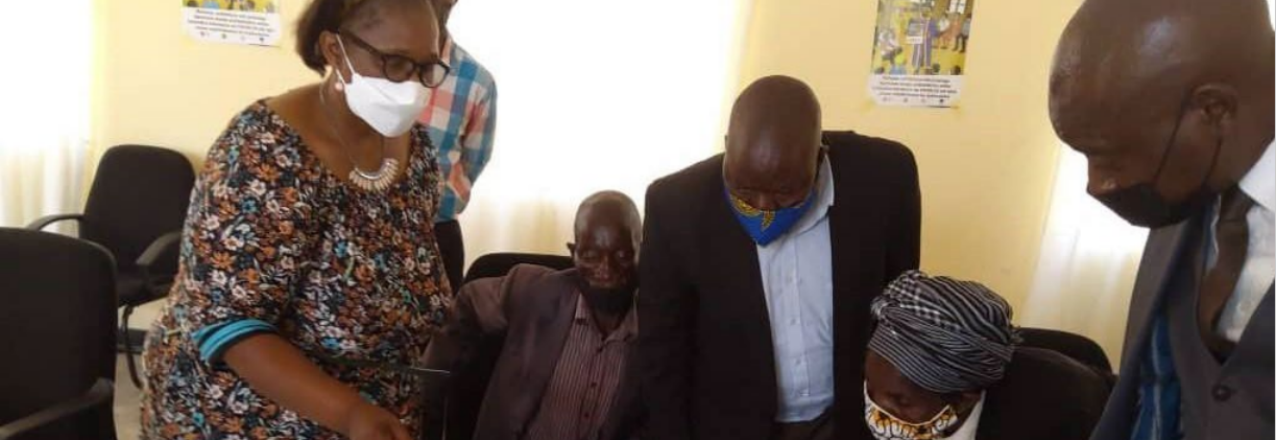Background
The purpose of the Integrated Land and Resource Governance (ILRG) task order is to provide support to the United States Agency for International Development’s (USAID) Land and Resource Governance Team under the Development, Democracy, and Innovation Bureau’s Environment, Energy, and Infrastructure Center to develop and implement targeted, discrete interventions in select USAID presence and non-presence countries to remove the tenure-related barriers to achieving priority development objectives such as conflict prevention and mitigation, countering violent extremism, achieving women’s economic empowerment, promoting inclusive economic growth, increasing agricultural productivity and food security, and strengthening biodiversity conservation and sustainable natural resources management.
The government of Malawi enacted a series of land laws in 2016, including the Customary Land Act 2016 that requires all customary landholders to formalize ownership through registration of their parcels. Pilot activities have been done in seven districts in Malawi ahead of a countrywide systematic customary land registration supported by development partners and donors like the World Bank and the European Union (EU).
It is anticipated that formalizing land rights in customary estates through titling will improve security of tenure. However, unless the process of formalizing land rights looks beyond the technical and legal components to address the social and cultural norms and attitudes that often undermine women’s land rights, there is potential risk of formalizing exclusion of women and other marginalized groups according to identities such as age, marital status, disability, and ethnicity, among others. The customary laws and practices that do not recognize equitable property rights will render formal legislation ineffective at ensuring gender equality and social inclusion in property rights. Both matrilineal and patrilineal systems are associated with some form of discrimination when it comes to land rights between men and women. The general practice that affects a person’s rights to land is the place of residence after marriage as inheritance is the principal way in which a person owns land in customary set ups.
With funding from the Women’s Economic Empowerment (WEE) Fund at USAID, ILRG is working against this background to support gender integration in customary land documentation in Malawi. The activity recognizes that while Malawi has put into place the legal framework for customary land documentation, implementation is in its early stages and the framework for action is emerging. The approach recognizes the diversity of patrilineal and matrilineal systems within Malawi and their associated impacts on women’s rights, as well as that social barriers are a key challenge to translate legal provisions into women’s access to and control of land in both matrilineal and patrilineal set-ups. The materials and manuals developed so far have not included an explicit and intentional gender lens and this can fail to address and/or inadvertently reinforce barriers to women’s land rights.
The activity will take place over approximately two years from activity initiation (a year and a half of implementation). There is no assumption that these funds will be followed on by additional investment in the sector in Malawi, and as a result the proposed activities will be stand alone and achieve impact within the two years. The activity links to the Government of Malawi’s (GOM) objectives related to customary land documentation, as well as USAID’s priority of advancing gender equality and women’s empowerment.
ILRG proposes to support gender integration across the full customary estate documentation process and administration on a single traditional land management area (TLMA). This will ensure that funds can be used to complete documentation of a full jurisdiction and feed into a complete administrative system, supporting the broader capacity required for the land clerk and associated structures to sustainably manage land records in coordination with district land registrar (a new position as well). Specifically, ILRG will:
- Provide technical assistance to a district level land registry and clerks;
- Promote the inclusion of women and youth in the land documentation process through updated
gender-responsive land guidelines, process manuals, and implementation practical notes; - Engage key stakeholders to shift gender norms around women’s land rights at institutional,
community, and household levels; and - Convene dialogues with national and international stakeholders to discuss lessons learned and build positive momentum on gender and customary land documentation work.
It is expected that gender-responsive documentation of customary land in the selected TLMA will benefit up to 45,000 people; the number is to be confirmed upon final selection of the group village headpersons (GVHs) to be supported within the TLMA. In addition, the activity will leave in place structures and links to broader land documentation funded processes for a lasting impact that is not dependent on USAID funding.
ILRG will contribute to USAID/Malawi’s overarching goal of “A More Self-Reliant Malawi that is Gender Equitable and Democratically Accountable” through the implementation of a gender transformative approach to customary land rights, as well as the three development objectives: 1. Public sector is more accountable and effective at national and decentralized levels; 2. Youth lead healthy, informed, and productive lives; and, 3. Private sector increases inclusive and sustainable wealth generation.
All activities will be carried out in close coordination with the Land Reform Implementation Unit (LRIU) at the Ministry of Lands, Housing, and Urban Development (MLHUD), and in compliance with USAID regulations. The plan will be implemented by ILRG Malawi country team, comprised of the Country Coordinator, Field Coordinator, and Administration and Finance Specialist. ILRG global and home office staff will provide technical and operational support and local consultants will be engaged for specific tasks as needed.
The implementation plan outlines the specific tasks to be undertaken by ILRG. Section 2 provides an overview of preparation tasks that informed the development of the implementation plan, followed by details on the tasks in Section 3, and monitoring, evaluation, and learning considerations in Section 4.


